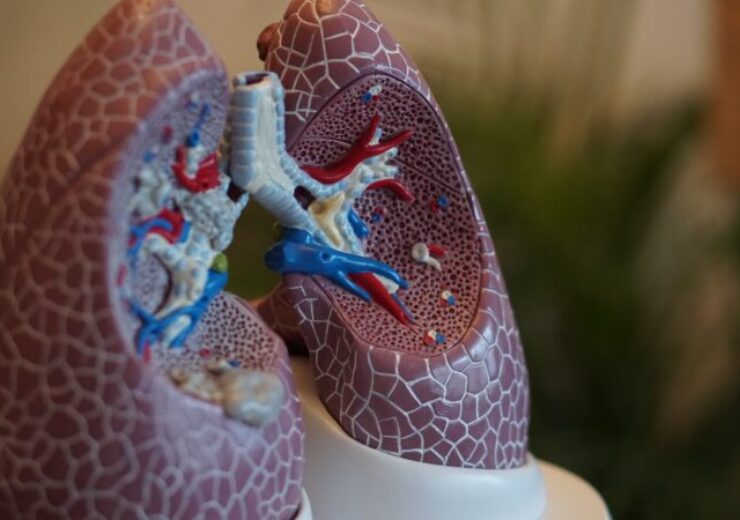In the study, the therapy showed a statistically significant and clinically meaningful improvement in progression-free survival (PFS) versus chemotherapy alone in both experimental treatment arms

Janssen’s Rybrevant shows positive topline results from the Phase 3 MARIPOSA-2 study. (Credit: Robina Weermeijer on Unsplash)
The Janssen Pharmaceutical Companies of Johnson & Johnson has announced that a combined therapy of its Rybrevant (amivantamab-vmjw) met the dual primary endpoint in a three-arm Phase 3 MARIPOSA-2 Study of certain lung cancer patients.
Rybrevant is a bispecific antibody that targets epidermal growth factor receptor (EGFR) and mesenchymal-epithelial transition (MET).
The late-stage trial evaluated Rybrevant in combination with or without lazertinib, an oral, third-generation EGFR tyrosine kinase inhibitor (TKI), combined with chemotherapy (carboplatin and pemetrexed) against chemotherapy alone.
It assessed patients with locally advanced or metastatic EGFR exon 19 deletions (ex19del) or L858R substitution non-small cell lung cancer (NSCLC) after disease progression on or after osimertinib.
In the study, the therapy showed a statistically significant and clinically meaningful improvement in progression-free survival (PFS) versus chemotherapy alone in both experimental treatment arms.
Janssen Research & Development Oncology Global Therapeutic Area head Peter Lebowitz said: “MARIPOSA-2 provides the first Phase 3 study data of Rybrevant-based regimens in the broader EGFR-mutated non-small cell lung cancer population.
“The study builds on the significant innovation of Rybrevant, a first-in-class bispecific antibody targeting two major oncogenic driver pathways, with clinically meaningful results that may change the treatment paradigm.”
MARIPOSA-2 is a randomised, open-label Phase 3 study with a goal to assess the efficacy and safety of two regimens of bispecific antibody and chemotherapy in 657 patients.
The dual primary endpoint was utilised to compare the PFS as assessed by blinded independent central review (BICR) for each experimental arm to chemotherapy alone.
The key secondary endpoints were defined as the objective response as assessed by BICR, overall survival (OS), time to subsequent therapy, duration of response (DoR), PFS after first subsequent therapy (PFS2) and intracranial PFS.
In a separate development, Janssen unveiled its plans to halt the Phase 3 MACiTEPH study that was evaluating macitentan 75 mg in patients with chronic thromboembolic pulmonary hypertension (CTEPH) due to futility issues.
The decision was based on the recommendation by the study’s independent data monitoring committee following a pre-planned interim analysis.
